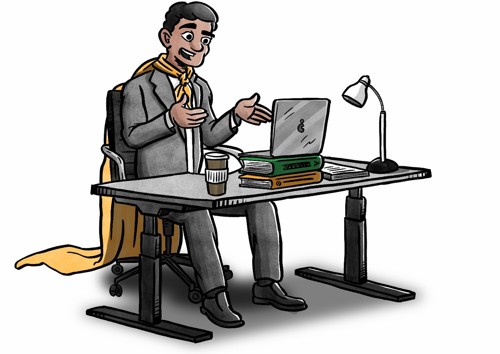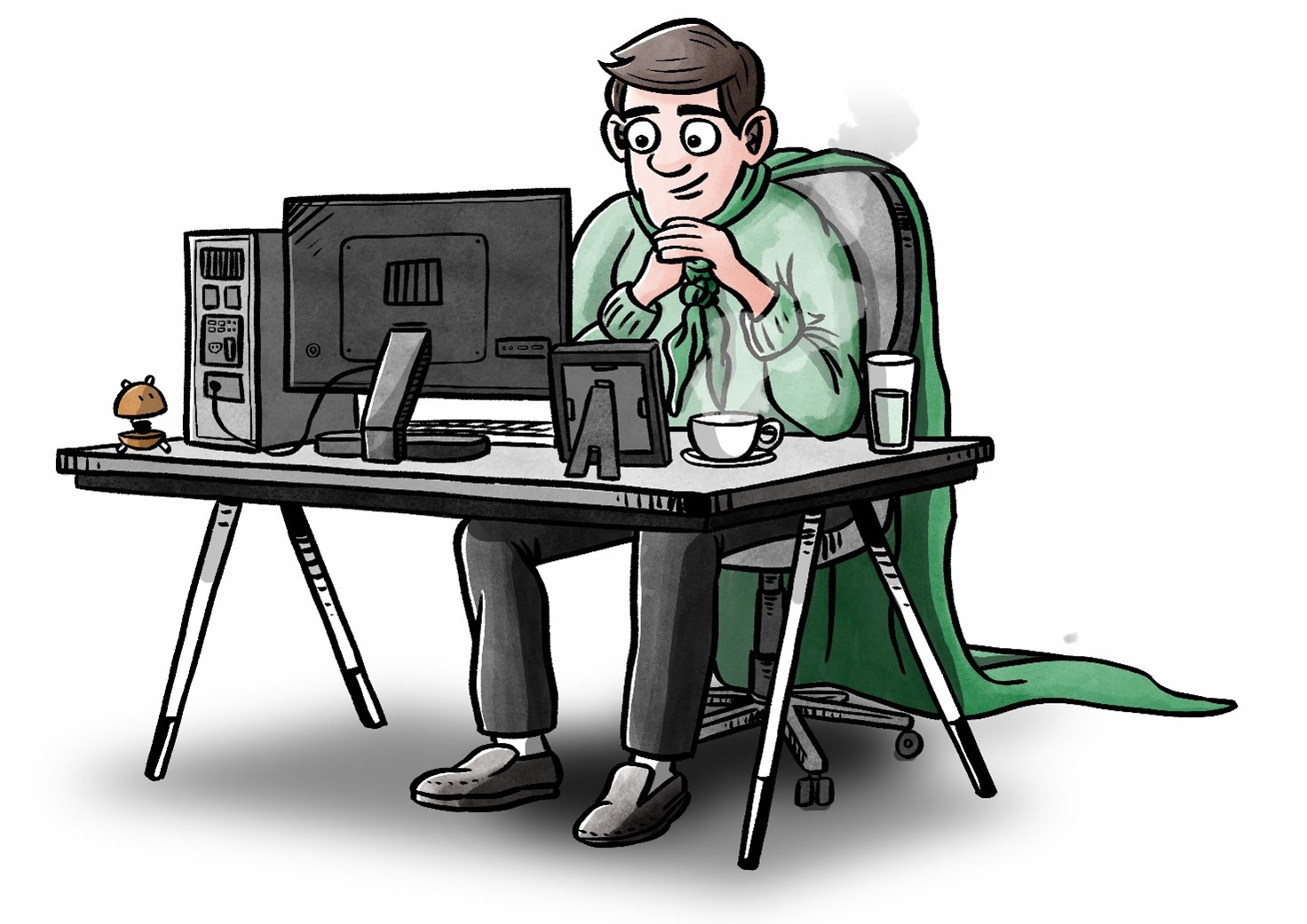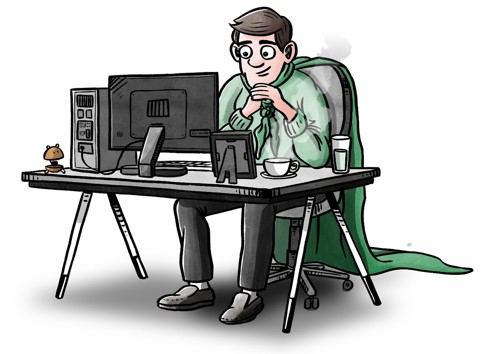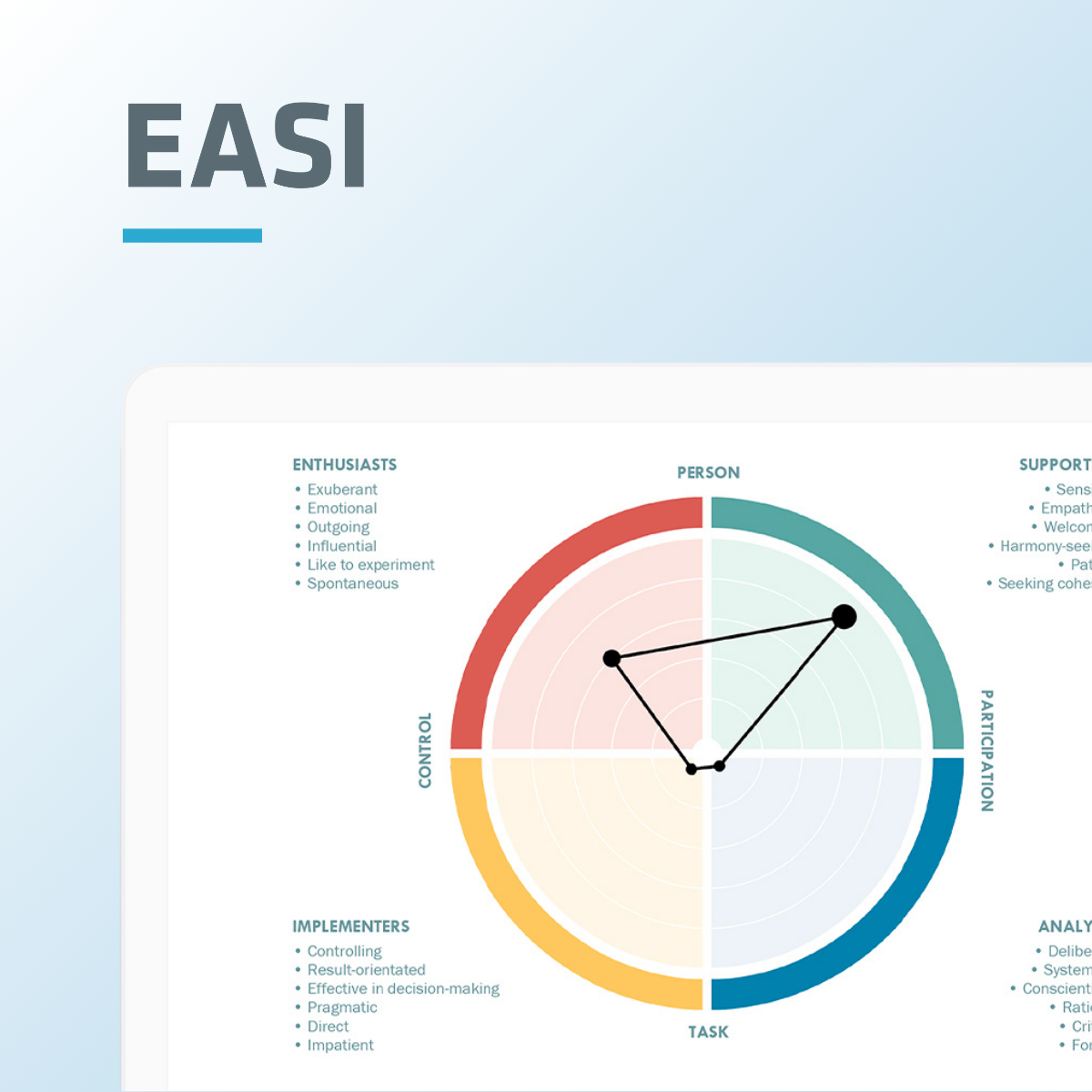What Type Are You in an Online Meeting?
How are you in an online meeting? You may have learned this question in recent months when the number of online meetings has generally increased significantly. You may also have noticed that you and your colleagues have different approaches to an online meeting.
There are a lot of psychological reasons for that. We are all different – even when we are at work. To strengthen teams and develop both employees and managers, a typology test is often used that divides people into four different types. If you know your type and the type of your colleagues, you learn about yourself and the others in the team. It can strengthen cooperation, well-being, and productivity.
This insight is, of course, also true in online meetings. With the increased digitization and "new normal" we see in working life, it becomes even more relevant to consider how you can strengthen your communication and cooperation in precisely online meetings. This creates assumptions that you know yourself and the other participants within the meeting.
What Type Are You?
Do you know yourself in one of these four types from the typology test EASI? The four different types of personalities are described as a little caricatured, where we, of course, all have some parts from each type in our essence. But one of the types will represent your primary behavior in an online meeting. Who are you?

Enthusiast
You are the type who clicks the meeting link at the last minute without knowing if the technique is working. Often you are unprepared, but quickly have an opinion on the subject.
You prefer online meetings where you can see yourself and the others. At the same time, you like meetings where there is room to inspire others. You talk a lot and want to talk about yourself. You have an informal and exuberant appearance.
You are happy to challenge the applicable premises if it helps to find new unique solutions. You love concept discussions and quickly get new ideas, even if it is outside the agenda. You are preoccupied with the major lines and would rather not spend time on details or joint planning. You are happy to make quick, spontaneous decisions or open a confrontation at an online meeting.

Implementer
As an implementer, click the meeting link just on time and expect the technique to work. You prefer short meetings without unnecessary digressions on other topics.
You are the one who will gladly take the meeting leadership role, and you expect there to be governance and a clear agenda for the meeting.
You have a controlling and controlling appearance and do not pack your messages in. You talk more than you listen to the opinions of the others.
You go straight to the point and lose your energy if there is no momentum at the meeting. You are happy to have a conflict at an online meeting and may want to "leave" the meeting while it is in progress if you do not find the topic relevant.


Supporter
As a supporter, click the meeting link well in advance, so there is time to test it. You prefer to see all participants and their reactions to the online meeting.
With a little small talk at the meeting, you can feel the atmosphere and how things are going with the others. You are listening and have an informal appearance.
When you must present, it is present and welcoming. You aim to explain the circumstances of the decisions and to acknowledge everyone's efforts and views.
If the trust is not in place, you may seem indecisive and hold back your views at the meeting. You do not want to be pushed for a quick decision if not all relevant people agree on the idea. You prefer time for dialogue in smaller groups between meetings and avoid conflicts in online meetings.

Analyst
As an analyst, you click the meeting link well in advance and have tested the technique before. You will notice details, such as if the camera does not point appropriately at the meeting manager.
You prefer online meetings with a clear agenda that is pre-posted. Your focus is on the professional and the agenda of the meeting. You are prepared to the smallest detail and are structured, disciplined, and precise in your presentation.
You rarely break the talking point but may well get annoyed if others do it. You are not showing it, though.
You have a formal appearance and do not invite you to create small talk. At the same time, you also do not want (spontaneously) having to brainstorm about new crucial topics. You do not want to promise more than you can keep but want to be completely safe first.
What type do you work with the most?
Did you recognize yourself in one of the types? Also, try to think about what types your closest colleagues are when you have online meetings. I wonder if you recognize them too. Your boss or manager will also be one of the types, and perhaps this knowledge will enable you to understand better the cooperation you have. The dynamics of a team or a management relationship can quickly be improved when you become aware of the different focus types.
Consider how you can use this knowledge of your different types in your everyday life.
What is EASI?
EASI is a typology test that works with four personality types. The test is primarily used to develop teams or managers and measures both on behavior and motivation. EASI is based on the Big Five model. The test was developed by Master International in Denmark, where psychologists, psychometrics, and data experts ensure the quality of the test at a high international level.

Identify Motivation and Behaviour with EASI
The typology test EASI makes it easy to understand what drives people and creates balanced, well-functioning and high-performing teams and nurture leadership. EASI helps you:
- Identify personality
- Build winning teams
- Improve communication


